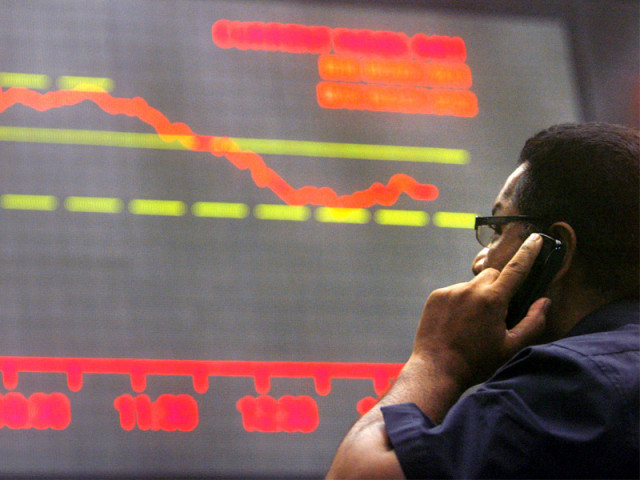Unilever accepts delisting price set by KSE
Food giant likely to incur ire of investors after deeply unpopular move.

The buyout will cost Unilever nearly Rs50 billion ($503 million), which the company is keen to bill as a symbol of its commitment to Pakistan. Photo: File
It was a move that was largely expected: global consumer goods giant Unilever has accepted the Karachi Stock Exchange’s (KSE) proposal to de-list its subsidiary Unilever Pakistan from the KSE at a price of Rs15,000 per share, about 55% higher than its initial offer price of Rs9,700 per share.
“Unilever Overseas Holdings Limited, a wholly-owned subsidiary of Unilever Plc today formally accepted the share buyout price announced last week by the KSE,” said Ehsan Malik, chairman and CEO of Unilever Pakistan.
The move will come as a blow to many of the institutional investors who had hoped to be able to persuade the exchange to either stop the delisting outright, or at the very least permit a direct negotiation between Unilever and its minority shareholders.
The buyout will cost Unilever nearly Rs50 billion ($503 million), which the company is keen to bill as a symbol of its commitment to Pakistan. “This decision reinforces the parent company’s confidence in, and commitment to, the opportunity that the Pakistani consumer market offers and therefore the growth potential of the Pakistan business,” said Malik, via e-mail to The Express Tribune.

It is precisely that share of the rapidly growing Pakistani consumer market that Unilever’s minority shareholders do not want to lose out on. Many of the foreign investors believe that the true value of Unilever Pakistan is significantly higher than Rs20,000 per share. Even the most conservative estimates by BMA Capital, a Karachi-based investment bank, put the valuation of the company at Rs16,600 per share.
The Rs15,000 per share price implies an earnings multiple of just over 36 times 2012 net income. On the surface, that appears high. But Furqan Punjani, a research analyst at BMA Capital, points out that Unilever Pakistan’s peer group – companies like Nestle Pakistan, Engro Foods, Colgate-Palmolive and Unilever Pakistan Foods – all trade at even higher multiples.
Unilever now has to call an extraordinary general meeting of shareholders to put the matter to a vote. But as investors such as Acacia Partners have pointed out, that meeting will be a farce: Unilever already owns more than the 75% of the shareholding it needs to approve the matter in the general meeting
The episode is likely to cause a major rethink among the management of the KSE about what the rules for delisting should be, since they currently seem to favour the sponsor rather than the minority shareholders. KSE’s top management have already indicated that they are considering drafting new rules for delisting, a move strongly being encouraged by the Securities and Exchanges Commission of Pakistan.
But Unilever is unlikely to find itself moving away from this saga unscathed. The institutional investors it irked the most are not local insurance companies or asset management firms: they are global investors, like Acacia and the Singapore-based Arisaig, which invest in many other Unilever subsidiaries worldwide. If Unilever is seen as a company that is unfair to minority shareholders, it could begin to affect the price institutional investors are willing to pay for it, driving the overall value of the global parent company downwards.
The consequences for the local market are harder to predict. The buyback means an influx of $500 million into the market, but it is not clear how much of it will stay. Foreign investors who held shares in Unilever Pakistan are clearly very interested in the country’s consumer goods sector, but their reaction is difficult to predict.
Will they decide that they want to explore other options, driving up the prices of other listed consumer goods companies, or will they simply decided that, as attractive as the growth in Pakistan is, liquidity is too shallow for them to invest? Much of the fate of the KSE’s future for the next year hinges on the answer to that question.
“All shareholders of Unilever Pakistan must thank the exchange for showing its concern over a flawed delisting process by requesting a higher price, and we join them,” commented Girish Bhakoo, who is associated with New York-based hedge fund Acacia Partners. “At the same time, we would like to make clear that we still think that the only fair price is a price that is negotiated between willing buyers and sellers. Any departure from this fact without due protections undermines basic property rights. We think many shareholders do not want to be forced to sell their shares at any price, and that permitting companies to force out shareholders without any negotiation risks creating the perception that the gates are now open and this is an invitation for every multinational subsidiary and other successful corporate with a bright future to vacate the Pakistani stock exchanges.”
Published in The Express Tribune, April 3rd, 2013.
Like Business on Facebook to stay informed and join in the conversation.



















COMMENTS
Comments are moderated and generally will be posted if they are on-topic and not abusive.
For more information, please see our Comments FAQ